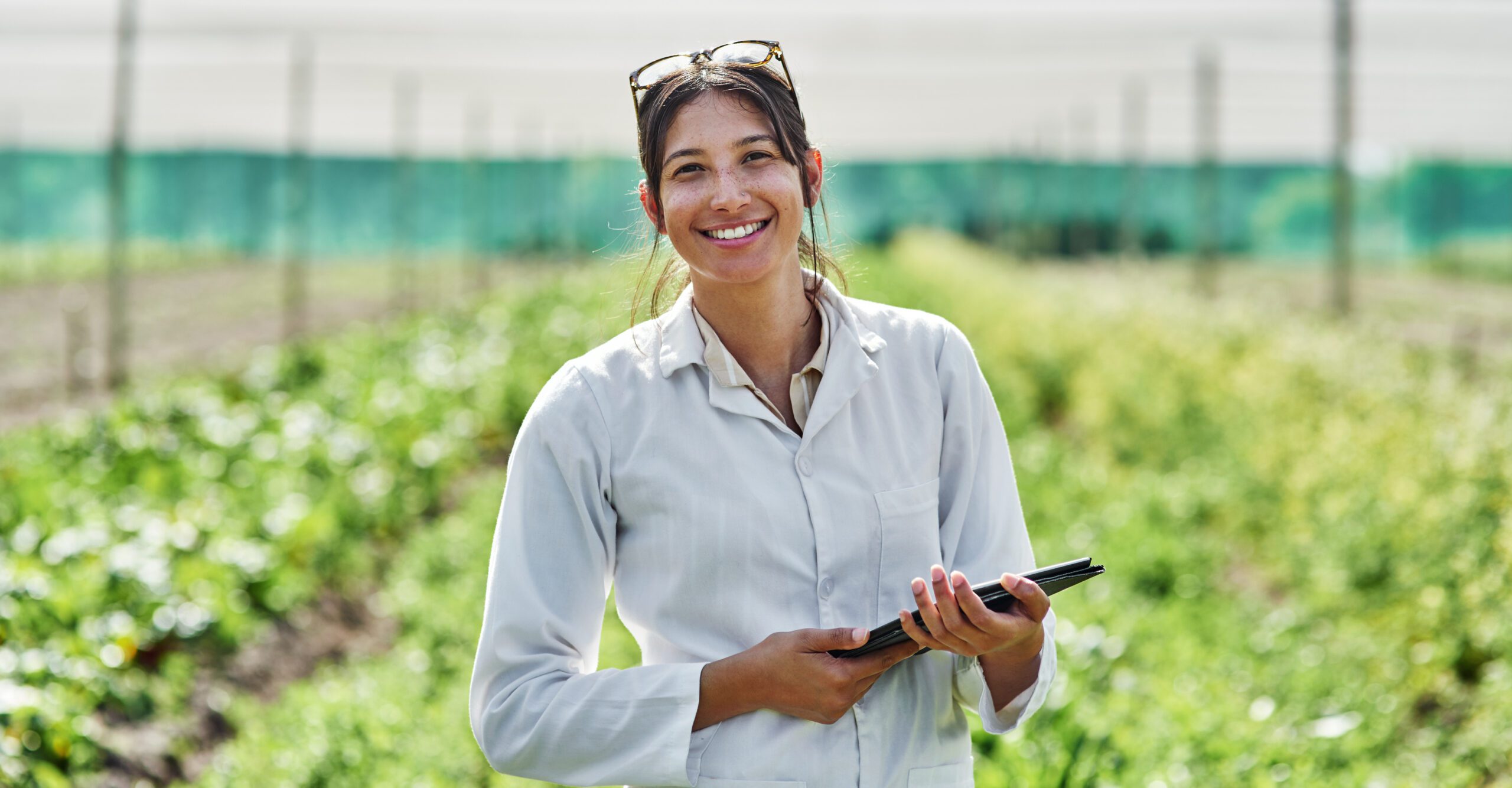As water, food, and energy needs increase around the world, women like Nidhi, Roula, and Judith are leading the way to build more sustainable futures for all.
Despite water, food, and energy being universal needs, access to and responsibility for these vital resources is often highly gendered. As UN Women notes, “women and girls are the most overburdened with managing water, food, and energy scarcity with their unpaid work.”

Water and Energy for Food: A Grand Challenge for Development (WE4F) is a multi-donor funding program that works with women innovators to grow their small and growing enterprises at the nexus of food, water, and energy. Photo by Tinashe N.
As demands for freshwater, food, and energy are only expected to increase over the coming decades, Water and Energy for Food (WE4F) has been scaling groundbreaking local water-energy-food innovations, including from women visionaries. As part of its work evaluating WE4F, Dexis spoke with women in three countries—India, Lebanon, and Zimbabwe—who are spearheading new approaches to build a better world.
Nidhi Pant, Founder, S4S Technologies, India
Born in the Himalayas and raised in Bombay, Nidhi Pant is a chemical technologist turned changemaker. Witnessing firsthand a combination of poverty, gender inequality, and post-harvest losses experienced by rural women farmers inspired her and a group of friends to found S4S Technologies, a women-led solar dryer innovator that targets women micro-entrepreneurs.
Ms. Pant explains that “40% of the food produced gets wasted due to post-harvest losses in the supply chain.” In addition, climate change, lack of infrastructure, and fragmented land holdings make it difficult for millions of smallholder farmers to feed their families, much less earn a profit from their labor. As the agriculture sector employs 80% of all economically active women in India, these challenges are keenly felt by rural women farmers.
S4S’ model provides these women farmers with patented food processing units that reduce moisture content in agro-produce, preserving produces up to a year without using any chemicals and preservatives. This solar-powered decentralized processing prevents food wastage and reduces post-harvest loss consequently helping smallholder farmers sell more, increasing their income while reducing greenhouse gas emissions.
Says Ms. Pant, “Our business is not only women-led but is centered around empowering the most vulnerable women. Women farmers prioritize social responsibility, community involvement, and environment protection in their approach, which can lead to a more equitable and sustainable future for all.”
Roula Khoury, Founder and CFO, the Quinta Group, Lebanon
Living in Lebanon, one of the five most water-stressed countries in the world, Roula Khoury is all too aware of the need to wisely manage resources. “Agriculture consumes more than 2/3 of the total water demand in Lebanon,” she explains.
Inspired to action, Ms. Khoury and her sister positioned their family business, The Quinta Group, to emphasize increased food production through sustainable practices—greenhouse production design and supply, irrigation solutions, grafting, and smart horticulture.
For example, they designed a smart irrigation system for onions—a crop with a relatively high water demand. Ms. Khoury and her team provided a water-efficient drip irrigation system for farmers that comes with hybrid seeds and technical and financial support. Their innovation has been helping to improve both crop quality and yield, while reducing costs and resource usage.
“Women bring unique perspectives, experiences, and ideas to agricultural innovations,” says Ms. Khoury about the work she and her sister are doing to improve agricultural outcomes and consequently livelihoods for the communities they work with.
Judith Marera, Founder and CEO, Lanforce Energy, Zimbabwe
“Having grown up in rural Zimbabwe, I witnessed the challenges of women and children in search of firewood for cooking. Some women and children lost their lives after being attacked in the thick forests and mountains while fetching firewood, some got raped, and some were bitten by snakes, which pushed me to find an alternative solution,” says Ms. Marera.
In response, she founded Lanforce Energy, a for-profit social enterprise in the renewable energy sector. Lanforce Energy constructs fixed-dome biogas digesters for farms, households, hotels, and institutions as well as provides training on installation and maintenance of prefabricated biodigesters, which are scalable depending on energy requirements.
“Women-led initiatives like mine help empower women economically as well as foster their confidence and leadership skills,” says Ms. Marera. Through WE4F, Lanforce Energy has supported 3,002 end-users, saved over 367,875 kWh of energy, reduced over 9,797 tons of greenhouse gas emissions, and grown over 5,549 tons of food to date.
Providing Support for Impact
Meeting current and future challenges at the nexus of water, energy, and food requires fresh thinking from everyone. To truly tap into women’s ingenuity means providing targeted support (e.g., gender lens investment readiness support, gender action planning, end-user financing mechanisms for women customers, and partnership development with women-focused organizations) as well as support for additional fundraising activities to increase their capital base.
As Batanayi Gwangwawa, one of WE4E’s gender advisors stresses, “Gender equality is a business case, an impact case, and a human case. Supporting women-led and/or -owned businesses is the surest way to achieve this triple-impact.”
Special thanks to Water and Energy for Food (WE4F) team and all the visionaries making groundbreaking water, energy, and food innovations throughout the world.


